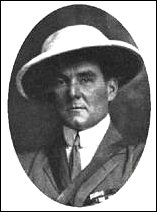The Pacific-News Service reports on a new poll showing linkages across Asian-American communities in California in response to the Dec. 26 tsunami. There are some interesting implication from this preliminary poll, namely, that linguistic barriers among Asian groups might not be a barrier to creating a new form of identity politics in California. Please take a look.
Asian Californians account for about 1 percent of the U.S. population, yet were responsible for more than 15 percent of overall donations. According to the poll, an estimated $200 million has come from the California Asian population out of the $1.2 billion in nationwide donations.
Most, like Patel, didn't know anyone affected by the disaster. According to the poll, only 8 percent of Asian Californians reported knowing someone directly impacted by the tsunami. Despite this, two out of three still donated to the relief effort.
"We have some evidence here that we may be seeing Asian groups coming together," says Sergio Bendixen, president of Bendixen and Associates, the firm that conducted the poll.
The poll surveyed 606 Asian Americans in California, both immigrant and U.S.-born, and 100 Indonesian Americans. It was conducted in six languages, between Feb. 8 and Feb. 18. Eighty-five percent of the people interviewed chose to speak in their native languages.
"Within a week of the tsunami catastrophe it was clear to us from conversations with our Asian media partners that Asian media was taking a leadership role in mobilizing relief," says Sandy Close, executive director of New California Media.
The nonprofit organization has created an exchange between hundreds of ethnic media outlets producing news in numerous languages across the country. Close partnered with interTrend Communications and various California foundations to conduct the poll after noticing the overwhelming call to action in many Asian papers following the tsunami.
Chinese-language, Vietnamese-language and Korean-language news outlets, among others, were urging readers to give to relief effort organizations, as well as donating funds themselves.
"This struck us as something, as a story that needed to be explored and told," Close says.
Subscribe to:
Post Comments (Atom)

No comments:
Post a Comment